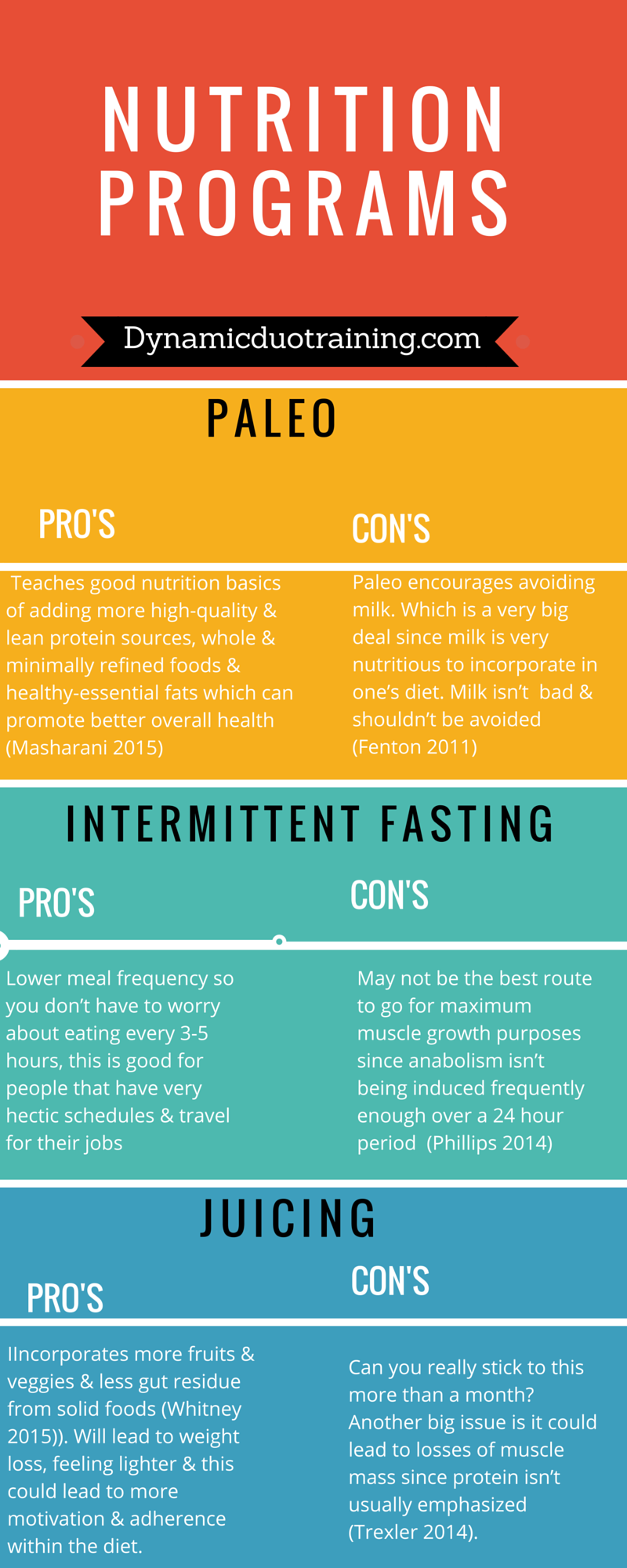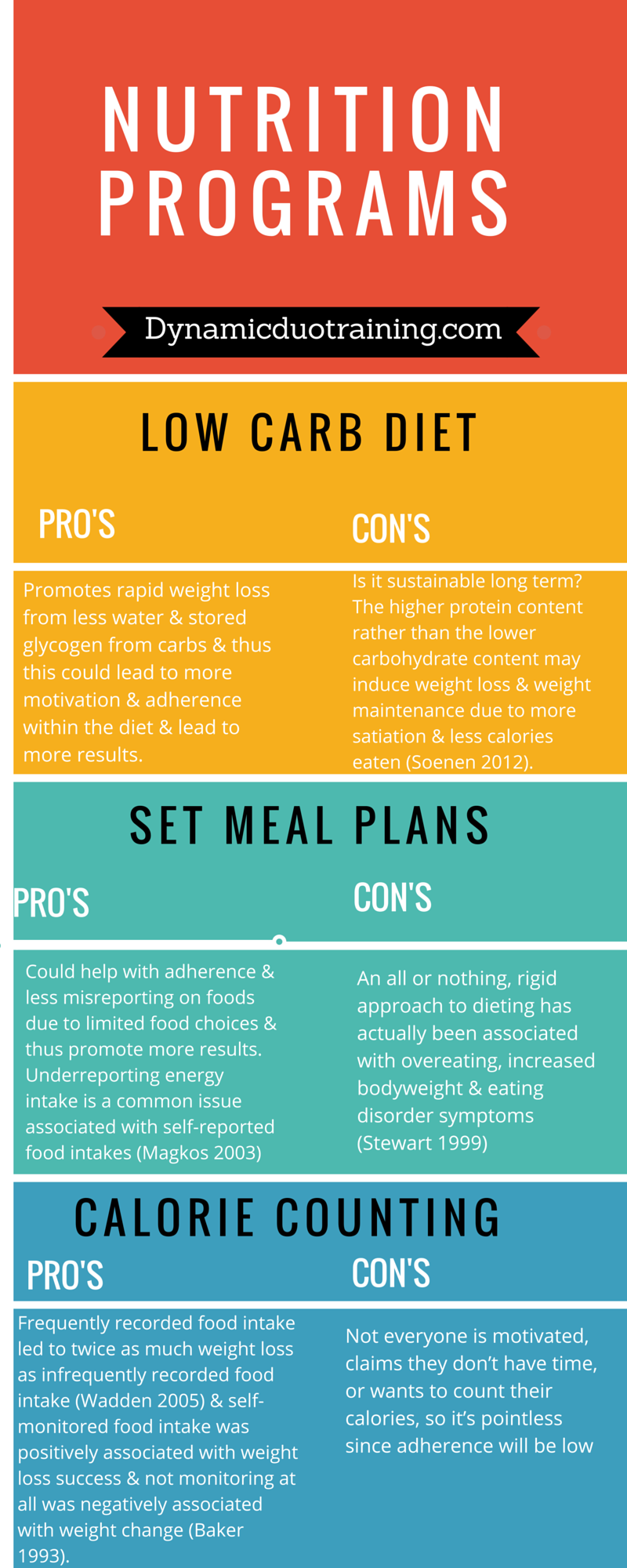By Chris and Eric Martinez
January 2016-
Lunch time hits, you go into the employee lounge, get ready to pop in your lunch that’s in tupper wear, and then that awkward moment comes from your coworker… “What are you eating for lunch?”
The conversation ends up leading into what diets one has tried, what works, what doesn’t work, the new diet they heard about and are going to try.
The conversation basically has you cringing while you eat your food and you can’t wait to swallow that last bite of grilled chicken to get the hell out of there.
We remember working in corporate America and having these moments with ex-coworkers and it didn’t matter what you told them, even if your point was valid, you had evidence to back up your points, and your anecdotal experience over the years showed for it… It was like speaking to a brick wall.
The topic that always ended up being touchy was a specific diet one had tried and others had success or didn’t have success with. These diets ranged from:
- Paleo
- Intermittent Fasting
- Juice Cleanses
- Low Carb
- Set Meal Plan Diets
- Counting Calories
- Eating card board…Jk 😉
We noticed a trend in everyone’s answers when they spoke of a diet they tried and had early success with and that was “the diet was great for “X” amount of weeks or so, but then I couldn’t sustain it.”
How many times have you heard this exact same sentence?
Even we have blurted this out when we tried a bunch of different diets early on in our fitness journey.
There’s always three magic bullet affects when you diet, that’s why they produce results, and we are going to tell you what the secret sauces are to them so you can finally get results too.
Magic Bullet #1- The Magic Potion Behind Restriction
The overall arch of diets that are successful induce restriction in some way and put you into a negative energy deficit (eating less calories than you burn).
Total energy balance (calories at the end of a 24 hour cycle) is the biggest consensus determining weight loss; this has always been and always will be the secret sauce behind the magic bullet success with diets (1).
Once you understand that one of the magic bullets come down to expending more calories than you consume, you can then decide on what type of nutrition program will work best for you.
Magic Bullet #2- The 3 Most Underrated Factors in Fat Loss
Once you understand that you need to put yourself in some sort of negative energy deficit to induce fat loss, you then want to think about creating the three most underrated factors in fat loss and those are:
- Creating good habits
- Focusing on behavioral changes
- Find something that’s going to motivate and inspire the hell out of you
Without these three key factors, it doesn’t matter what “optimal” diet you follow, you can eat all the “clean” and “magical” foods you want or have the “perfect macro ratios,” and you still won’t have success with the diet. Why? Because you need to lay down the foundation to your diet first before anything and that’s by creating good habits, behavioral changes, and being motivated.
Magic Bullet #3- The 3 Key Questions to Ask Yourself Before you Start a Diet
Now that you have laid down the foundation to your diet by creating good habits, behavioral changes, and being motivated…you can now think about the three key questions to ask yourself and those are:
A) Which nutrition program will fit my lifestyle and schedule best?
B) Which nutrition program can I see myself on for weeks, months, and years?
C) Which nutrition program do I have a personal preference for?
Now that you have figured out the secret sauce behind the 3 Magic bullets for fat loss, it’s time to start weighing out the pros and cons to six different nutrition programs to help you select which one resonates with you most:


Remember These Key Ingredients When Trying to Make a Magic Bullet for Dieting
- Make sure to master the basics of nutrition and change your behavioral habits to build the foundation for success and long term sustainability
- Make sure the diet induces some sort of negative energy deficit
- Make sure you have a personal preference for the diet so it increases adherence and consistency
- Make sure the diet fits your lifestyle and schedule
- Look for a sustainable lifestyle change rather than a quick fix
- Make sure you can see yourself on this diet for weeks, months, years, and most importantly can you see yourself on this nutrition program post diet
We will leave you with this:
“Our data tells us that when it comes to body fat loss, not all diet calories are exactly equal,” Professor Hall said. “But the real world is more complicated than a research lab, and if you have obesity and want to lose weight, it may be more important to consider which type of diet you’ll be most likely to stick to over time (12).”
“The Key to successful long term weight loss appears to be related to developing the skills and behavioral strategies needed to effect long term changes in diet, exercise and overall physical activity (13).”
We couldn’t have summed it up better than this.
No Magic Bullets. No Gimmicks. Just Science, Hard Work, and Consistency!
If you need help implementing the right nutrition program for your goals, lifestyle, and preferences, let us help you. Click HERE to see what program is best for you.
CHECK US OUT ON:
SNAP CHAT:
FACEBOOK:
TWITTER:
YOUTUBE:
INSTAGRAM:
PINTEREST:
References:
- NHLBI 1998; Wing 2001; Jakicic 2001
- Masharani et al. Metabolic and physiologic effects from consuming a hunter-gatherer (Paleolithic)-type diet in type 2 diabetes. 2015
- Fenton, TR. Milk and acid base balance: proposed hypothesis versus scientific evidence.2011
- Phillips, S. Abrief review of higher dietary protein diets in weight loss: a focus on athletes. 2014
- Whitney et al. Understanding Nutrition. 2013
- Trexler et al. Metabolic adaptation to weight loss: Implications for the athlete. 2014
- Soenen et al. Relatively high-protein or ‘low-carb’ energy-restricted diets for body weight loss and body weight maintenance? 2012
- Magkos et al. Methodology of dietary assessment in athletes. Common Pitfalls. 2003
- TM. Rigidvs. flexible dieting: association with eating disorder symptoms in non- obese women. 2002; Smith. CF. Flexible vs. Rigid dieting strategies: relationship with adverse behavioral outcomes.1999
- Wadden et al. Randomized trial of lifestyle modification and pharmacotherapy for obesity. 2005
- RC. Self-Monitoring may be necessary for successful weight control. 1993
- Hall et al. Calorie for Calorie, Dietary Fat Restriction Results in More Body Fat Loss than Carbohydrate Restriction in People with Obesity. 2015
- Mike Joyner http://www.drmichaeljoyner.com/wheat-belly-low-carb-diets/
